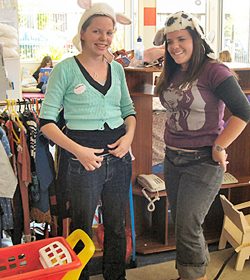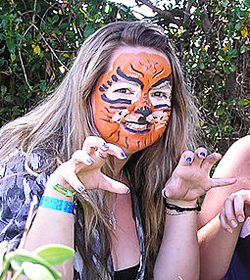Diploma Programme Curriculum
Learn Much More Than You Expect!
Early childhood centres and nanny employment agencies tell us they prefer graduates from the Ashton Warner Academy because they have all had a wide range of practical experiences on work placement as part of their course. On the course you’ll actually make lots of practical resources for fun learning activities with children.
You spend one third of course time on supervised work placement with three different families, an early childhood centre or school. You get to practice the skills you have learned alongside staff in early childhood centres, and in different nannying situations. These can include work with infants, residential nannying and helping children with special needs.








Early Childhood Education
- Art, music and movement, imaginative, dramatic and creative play
- Children’s literature
- Science and maths, constructive, manipulative
- Sand and water play carpentry
- Te Whariki, the Early Childhood Curriculum
- Structure/roles of helping agencies
- Changing parenting and child raising patterns
- Programme planning
Infant Care
- Care of the newborn infant to 36 months
- Breastfeeding management, bottle feeding, Introducing solids
- Infant bathing, teething, supervision
- Nutrition, immunization
- Pregnancy, post natal depression, monitors for at-risk infants
- Visiting infants to tutorials for practical demonstrations
- Settling young children – responsive caregiving
Child development
- A comprehensive understanding of the child from birth to adolescence.
- Conception and birth, attachment
- Physical, intellectual, social, language & emotional development
- Vygotsky, Bronfrenbrenner, Piaget, Erikson’s theories of Human Development plus Māori and Pasifika approaches
- Guiding childrens’ behaviour
- Special needs
- Child observations and running records
Professional Development
- Role of early childhood educator and nanny, professional ethics
- Bi-cultural and multicultural issues: Culturally appropriate relationships and learning activities for young children
- Te Tiriti O Waitangi, marae visit, use of simple phrases in Te Reo Māori in early childhood settings
- Interview skills, employment contracts, job descriptions
- Employer/employee relationships, CVs
- Self employment, taxation
- NZ & overseas nanny agencies
- Visas passports and work permits
- Travel, working holidays, Camp America, Deportment and grooming
- Self-defence certificate
Home Management
- Cleaning routines and home maintenance
- Organisation skills
- Professional conduct in the home
- Appropriate use and understanding of home appliances
- Car Safety
Safety
- Water safety and survival, Home safety and security
- First Aid Certificate (pediatric)
- Traffic safety, children’s car seats
- Fire safety
- Playground safety, Toys and infant equipment
Nutrition
- Selection, planning, preparation & presentation of children’s & family meals.
- Menu planning, Food sensitivities, Allergies
- Food processing & hygiene
- Good food habits for children
- Nutrition for infants, children of different ages, pregnant & lactating women
- nutritional goals
Health
- Communicable diseases, Childhood illnesses and conditions
- Caring for the sick child, infant massage
- Role of health professionals, Holistic health.
- Hospitalisation of children
- Child protection
- Recognition of child abuse
- Dental Health, Cot death, Grief issues
NB: Students completing the L3 programme cover many of the same areas outlined above.
Enrol now to secure your place in our upcoming course
NZ Diploma in Early Childhood Education and Care L5 Course Curriculum
The Nanny Academy's courses include a wide range of practical experiences on work placement as part of their course. Enrol now to secure your place
Course Provider: Organization
Course Provider Name: Ashton Warner Nanny Academy
Course Provider URL: https://nannyacademy.ac.nz/

